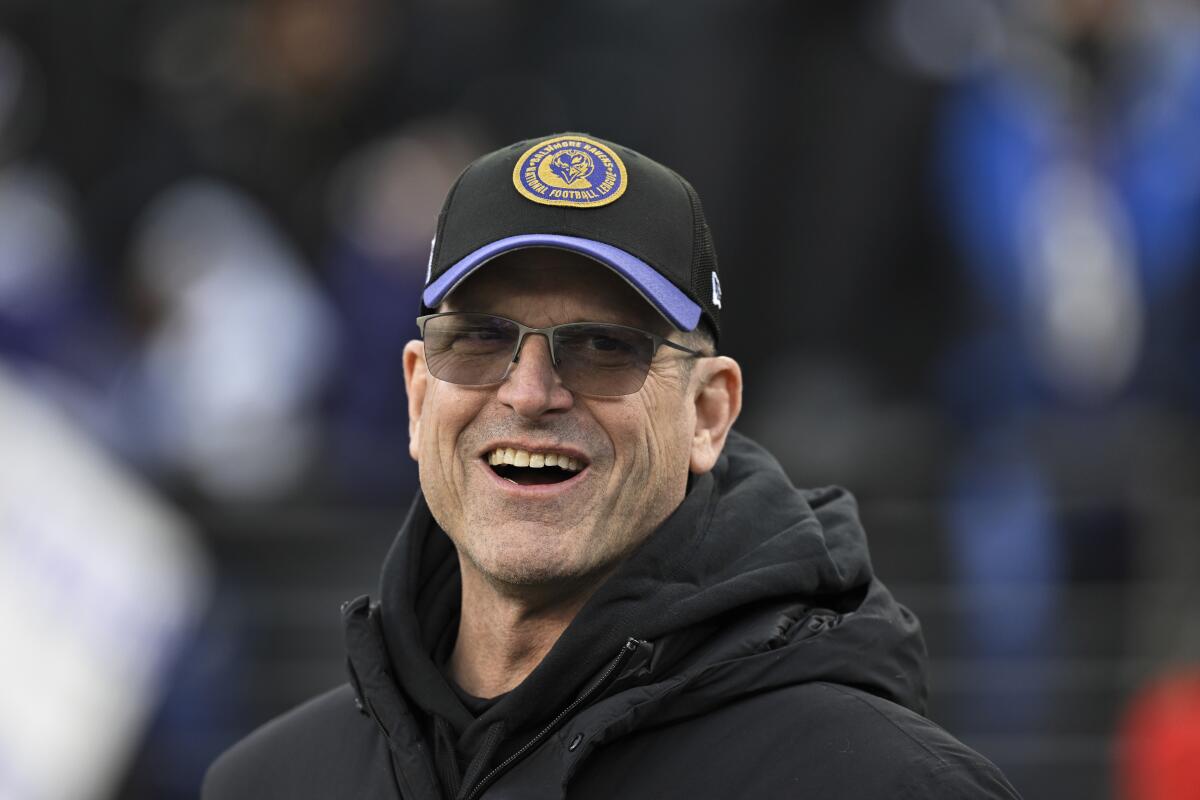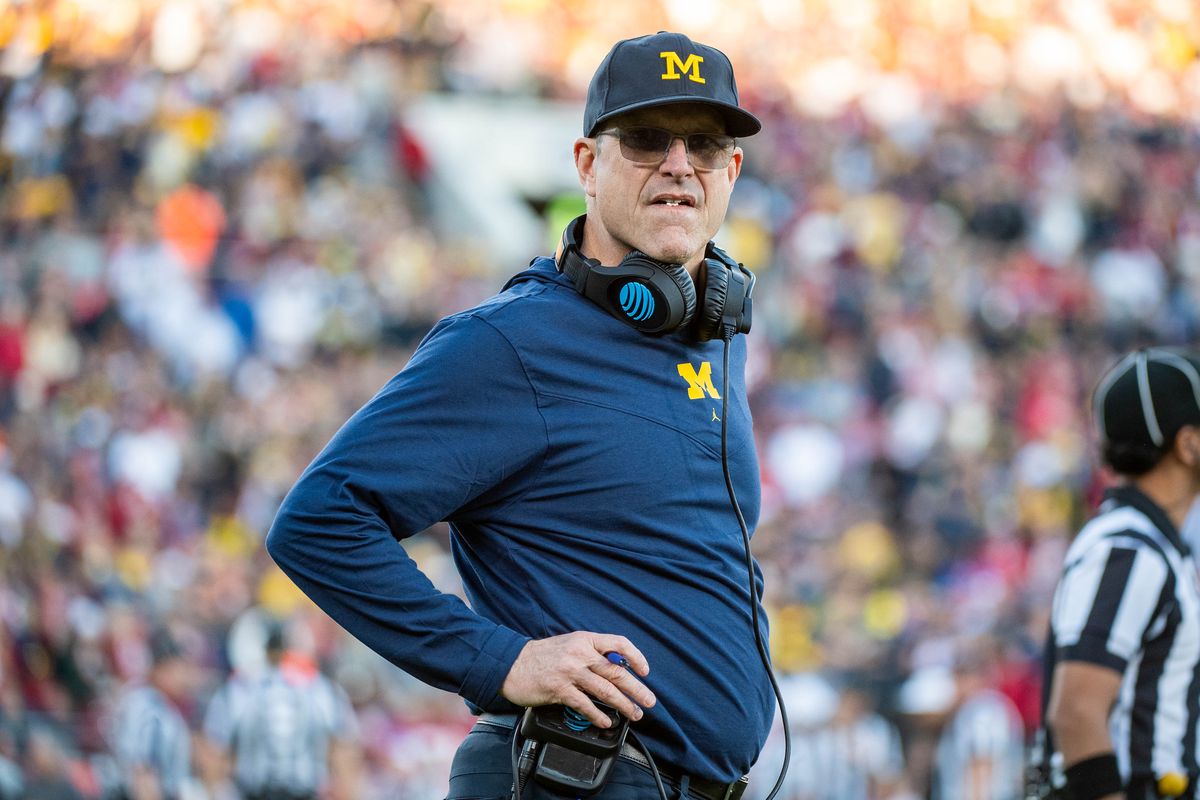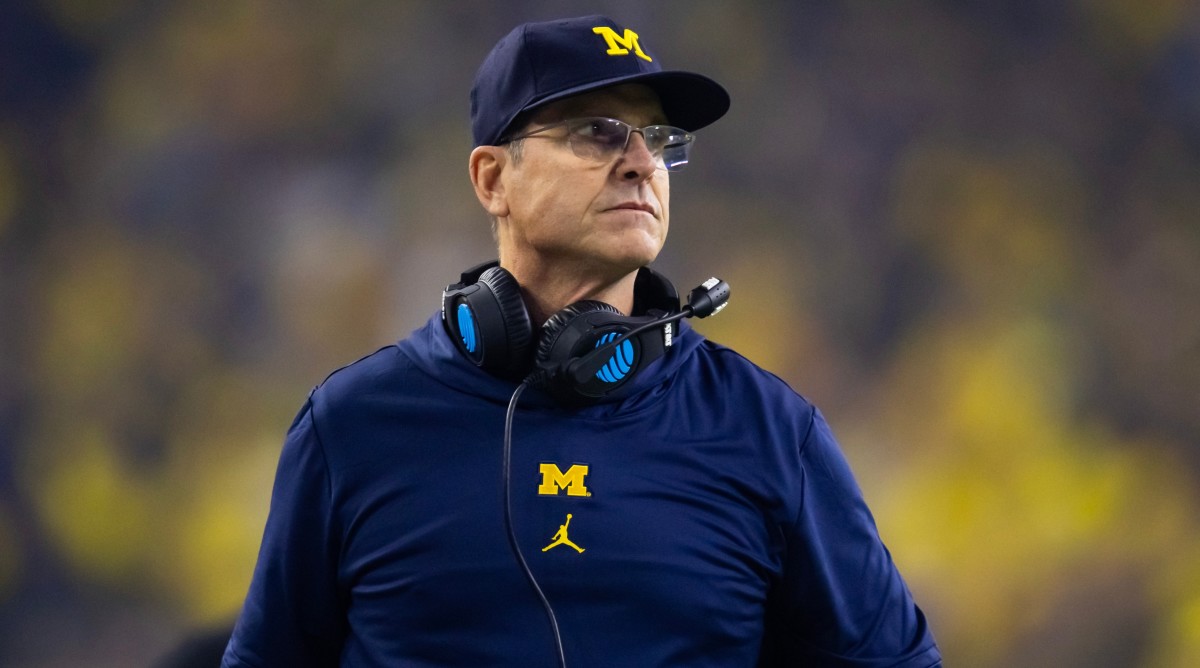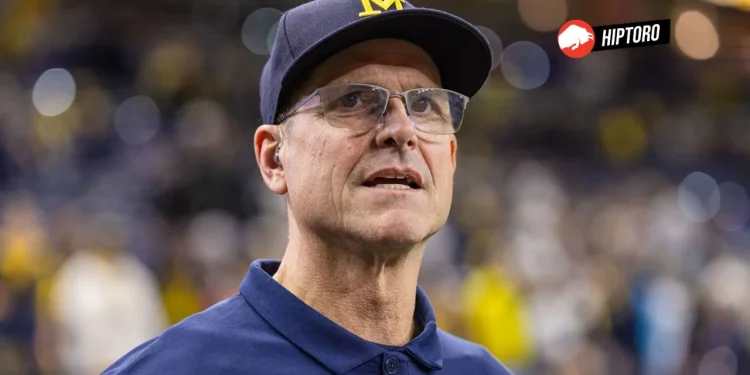In a twist that feels straight out of a Hollywood sports drama, Jim Harbaugh, the former head coach who led the Michigan Wolverines to a national title, has become the center of a contentious dispute involving NCAA regulations and the Michigan football program. The saga has now followed him to his new role as the head coach of the Los Angeles Chargers, adding layers of complexity to his celebrated yet controversial career.

Michigan Wolverines Response To The NCAA’s Accusations
The NCAA recently announced a disciplinary settlement related to violations of in-person recruiting rules during the COVID-19 dead period. The Michigan Wolverines, along with five individuals associated with the football program, have been implicated in these infractions. The penalties imposed include a three-year probationary period, financial penalties, and specific recruiting restrictions, which collectively aim to address and rectify the program’s oversight failures.

The statement from the NCAA explicitly pointed out a failure in leadership, noting, “the underlying violations demonstrated a head coach responsibility violation and the former football head coach failed to meet his responsibility to cooperate with the investigation.” Although not named directly in the NCAA’s statement, the reference to the “former football head coach” unmistakably alludes to Jim Harbaugh.
Legal Perspectives and Jim Harbaugh’s Defense
Adding to the drama, Harbaugh’s attorney, Tom Mars, has publicly countered the NCAA’s and Michigan’s stance, suggesting that the university has scapegoated Harbaugh. In a statement provided to ESPN’s Adam Rittenberg, Mars articulated a narrative of betrayal and procedural mishandling. He accuses Michigan of “throwing [Harbaugh] under the bus,” indicating a possible rift between the coach’s expectations of institutional support and the actions taken by the university.
Jim Harbaugh has put each Charger player’s high school “star rating” on their locker, per @DanWSports.
Interesting move by the former Michigan coach 👀 pic.twitter.com/XXKdxEXT6b
— SleeperCFB (@SleeperCFB) April 10, 2024
This allegation introduces a personal and legal twist to the proceedings, suggesting that the issue may not just be about NCAA rules but also about internal politics and the protection of institutional reputations.
Jim Harbaugh And Pete Carroll Share Similar Departures
Harbaugh’s departure for the NFL bears striking similarities to Pete Carroll’s exit from USC, which was also timed closely with impending NCAA sanctions against the Trojans for recruiting violations. Critics often cite Carroll’s move as a strategic escape from NCAA repercussions, a narrative now being paralleled with Harbaugh’s recent transition to the Chargers.
These comparisons are not just superficial but highlight a recurring theme in college sports—where the lines between career advancement and avoidance of regulatory scrutiny blur. Whether Harbaugh’s move was a calculated escape or a coincidental career progression remains a subject of public and media speculation.

Legacy and Controversy
As this saga unfolds, the implications for Harbaugh’s legacy and the integrity of Michigan’s storied football program remain uncertain. The NCAA’s final decision on Harbaugh’s part in the violations will significantly influence public perception and his future career. Meanwhile, the Michigan Wolverines must navigate the aftermath of these sanctions, striving to restore trust and compliance within their recruiting practices.
The situation underscores the complex interplay of sports, regulation, and personal ambition. As the details continue to emerge, the sports world watches closely, aware that the outcomes of this controversy will resonate far beyond the gridiron.

Source- Yardbarker









